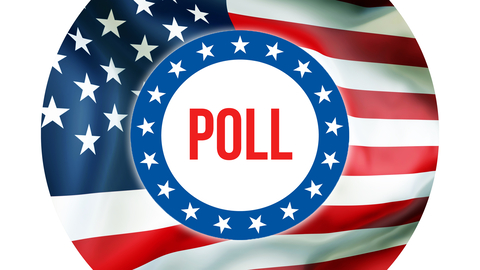
As polls show the race tightening between President Donald Trump and former Vice President Joe Biden in the aftermath of the Republican convention, a new poll indicates one thing has not changed: Trump’s approval rating.
President Donald Trump’s efforts to build his appeal and define his opponent at the Republican National Convention, using pageantry and the White House as the backdrop, had little apparent impact on the electorate’s impressions of both him and former Vice President Joe Biden, a new ABC News/Ipsos poll finds.
Trump’s week of celebration did not improve his favorability, even among his own base, and the country still remains widely critical of his handling of the major crisis of his presidency: COVID-19.
This is not surprising. Unlike most Presidents who take office. Trump has made no efforts whatsoever to broaden his base. He has been and remains President of The Base, By the Base, and For the Base. Trump’s goal has been to deliver for his base, hold his base, and trigger his base to come out in full force for 2020. There has been little to appeal to other voters, particularly those who didn’t vote for him who –unlike other Presidents — he has treated as the enemy.
Less than one-third (31%) of the country has a favorable view of the president in the days after he accepted the Republican nomination for the second time — a stagnant reality for Trump. His favorability rating stood at 32% in the last poll, taken a week earlier, right after the Democratic National Convention.
In the new survey, which was conducted using Ipsos’ KnowledgePanel, Biden’s favorability remains higher than his unfavorability, 46% to 40%, solidifying his improvement in favorability from last week, when attitudes about the Democratic nominee improved to a net positive from his slightly underwater position prior to the convention.
Biden’s favorability ticked up from 40% in an Aug. 13 poll to 45% just after the Democratic convention.
Among Democrats, too, Biden’s favorability climbed seven points after his convention — showing signs that he’s solidified support among his base. But Trump’s favorability dipped slightly — by four points among Republicans in the newest survey.
But lest Democrats and others opposing Trump breathe a sigh of relief, it ain’t over until the woman of size sings: some analysts are now suggesting this could a repeat of 2016 in terms of polls when polling did not completely capture the depth of his support.
“Republicans and independents are twice as likely as Democrats to say they would not give their true opinion in a telephone poll…
Some 11.7% of Republicans and 10.5% independents said they would not give their true opinion, vs. 5.4% of Democrats.”https://t.co/MbIELe1Txf
— Frank Luntz (@FrankLuntz) August 29, 2020
Poll of the week: A new Reuters/Ipsos poll puts former Vice President Joe Biden at 47% to President Donald Trump’s 40% among registered voters. The poll was taken partially during the Democratic National Convention and partially during the Republican National Convention.
Biden’s advantage in the average of all polls has been consistent and most polls (unlike Ipsos) have him with more than 50% of the vote.
What’s the point: One of the more interesting phenomenons during this campaign has been watching analysts, pundits and voters grapple with what occurred in 2016. The polling suggested Trump would lose to Hillary Clinton, and he, of course, won in the Electoral College.
One response to the current data and reaction to it comes from Axios’ Jim Vandehei. He says the conventional wisdom that Trump can’t win is wrong.
The result of the 2016 outcome for this cycle is that the general public doesn’t buy the polling showing Biden clearly ahead. They think Trump is going to win.
A Pew Research Center poll published earlier this month demonstrates what’s going on quite well. The poll had Biden up by 8 points over Trump, very similar to the average and the Ipsos poll discussed earlier.
Yet, the same poll found that Americans believed by a 51% to 46% margin that Trump would defeat Biden in the election. (Among voters, it was a tighter 50% to 48% spread in favor of Trump.)
The poll indicates that voters either believe the race will shift back to Trump or that the polling is wrong.
Interestingly, the poll was self administered via the internet without live interviewers, so it’s not like the voters who said they were voting for Biden had reason to give what they might perceive as the more socially desirable answer (i.e. not voting for Trump).
Despite this, some voters think the polling is off.
And:
Another question getting at the idea of potentially hidden Trump voters shows something similar to the Pew poll. By a 5-point margin, voters in an August Fox News poll said they thought more of their neighbors were voting for Trump over Biden. Biden was ahead in the horserace by 7 points in the poll.
The polling on who voters think is going to win is a marked reversal of what was happening at this point four years ago. Voters believed that Clinton was going to win by a 62% to 28% margin in a mid-August Quinnipiac University poll.
Yet the horserace polling at that time actually had Clinton ahead in the average by less than what Biden is currently up by.
And, as I noted previously, voters overwhelmingly believed Clinton would win at the end of the 2016 campaign.
Illustration 135361458 © Borka Kiss – Dreamstime.com
Joe Gandelman is a former fulltime journalist who freelanced in India, Spain, Bangladesh and Cypress writing for publications such as the Christian Science Monitor and Newsweek. He also did radio reports from Madrid for NPR’s All Things Considered. He has worked on two U.S. newspapers and quit the news biz in 1990 to go into entertainment. He also has written for The Week and several online publications, did a column for Cagle Cartoons Syndicate and has appeared on CNN.
















